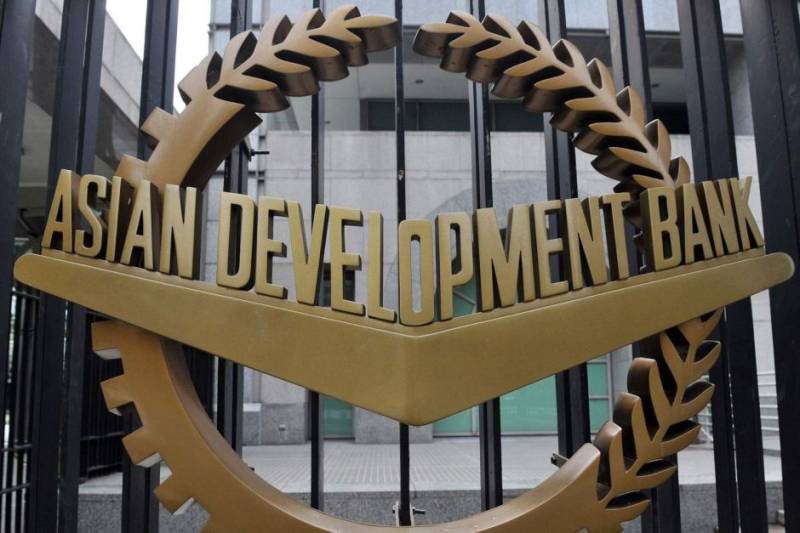ISLAMABAD - The Asian Development Bank (ADB) will launch a history book titled as “Banking on the Future of Asia and the Pacific, 50 Years of the Asian Development Bank” on Thursday in Islamabad.
The 548-page book was commissioned by ADB and written by Australian National University academic Peter McCawley, a former Executive Director of ADB and former Dean of the ADB Institute. The book details ADB’s activities from its origin in 1966, decade by decade to the present day. It also illustrates the genesis of ADB regarding different proposals from across Asia and the Pacific, preparatory meetings in Bangkok, Manila and other cities, and collaboration of people within and outside the region to discuss the charter, membership and location of the Headquarters.
The ADB has played an important role in the transformation of Asia. 50 years ago, ADB was created through the collective wishes and collaborative efforts of countries within and outside the region. There is little content on the Pakistan’s economy in the book. However, Pakistan, who is one of the founding members of ADB, had received more than $29.5 billion from ADB in loans, technical assistance, and grants to achieve its development goals.
The ADB provided its first loan to Pakistan in 1968 to help the country fund the credit requirements of small and medium-scale industries. Since then, ADB has extended vital support to improve Pakistan’s economy, reduce poverty and achieve development goals. Pakistan and ADB have worked together to promote export, private sector efficiency, reform public sector management, financial market development, improve social protection, emergency assistance and prioritising energy. A particular emphasis has been placed on promoting the welfare of women.
ADB has been one of Pakistan’s largest and most steadfast development partners. In the 1970s, the ADB stepped into the area of power generation and transmission, including supporting natural gas and hydropower projects. The Tarbela hydropower plant, one of largest power plant of Pakistan, was originally supported by ADB in 1974 and has been extended in coordination with other development partners in subsequent decades. ADB also extended vital assistance for Mangla dam and Ghazi Barotha power plants.
After a resident mission was established in Islamabad, the ADB focus edits expertise and resources on supporting efforts to grow the economy through free enterprise, privatisation, deregulation, and liberalisation. This included promoting exports and bringing private sector efficiency into health care and education.
By the middle of the 1990s, ADB’s work in Pakistan was focused on education, population welfare, public sector management reform, and government decentralisation. In the early 2000s, a new government put in place an economic reform programme designed to build on efforts in the 1990s to open the economy through privatisation and economic liberalisation. The programme, along with other factors, was a major boost to the economy.
From 2005 to 2012, Pakistan and ADB have worked together to restore basic services and livelihood to millions of people devastated by 2005 earthquake in northern Pakistan, and subsequent floods in 2010 and 2011. The period also marks projects to upgrade transmission and distribution networks, improve transport infrastructure and connectivity, agriculture and irrigations systems, livelihood development, and investment to boost social security of poorest and most vulnerable groups including women.
Between 2012 and 2015, ADB-supported projects in Pakistan helped build or upgrade 2,454 classrooms and train 656 teachers, benefiting 53,729 students. The ADB’s energy assistance resulted in an additional 0.113 megawatts (MW) of power generation, as well as the installation or upgrading of 729 km of distribution lines, providing electricity to about 92,443 households.
ADB’s water supply and sanitation programmes have provided a total of 32,944 households with improved sanitation and have installed or upgraded 1,075 km of water pipes, which now bring clean water to 192,698 households. ADB projects financed wastewater treatment plants with the capacity to handle a total of 570,000 cubic meters (m3) per day. And, under its rural development projects, there were 162,976 micro-finance loan accounts opened or end borrowers reached. Through its regional cooperation and integration projects, ADB has facilitated the cross-border transport of 9,279,000 tons of cargo per year.
ADB can reflect on its achievements in Pakistan with pride. Pakistan and ADB have built highways, rural roads, hydroelectric power plants, canals, schools, hospitals, financial markets, and other critical facilities that improve lives and help pull millions out of poverty. Together with other development agencies, non-government organisations, and the private sector, ADB is committed to work to attract investment, create industries and jobs, and improve the quality of life of Pakistan citizens.
“The ADB is developing the Turkmenistan–Afghanistan–Pakistan–India (TAPI) Pipeline to transport natural gas from Turkmenistan through Afghanistan into Pakistan and India.
The project, the total cost of which would exceed $10 billion, presents an opportunity for regional cooperation on an expanded scale linking the four economies. With the opening up of new markets, landlocked Turkmenistan will be able to diversify gas exports to the east. Pakistan, Afghanistan and India will gain a steady supply of affordable gas to power their growing economies,” stated the book.
OUR STAFF REPORTER






